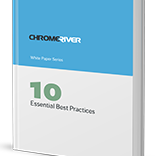Is Lack Of Data Slowing Your Decision-Making?

The hype surrounding “big data” can give the impression that good analytics software is all an organization needs to improve the quality and speed of its decision-making. Yet, even when organizations rely on data in creating or implementing business strategies, the important decisions are still often made by people.
Analytics Isn’t Just About the Data

To generate better business decisions, you need more and better data, right? Not necessarily. According to SmartData Collective, a successful analytics program requires much more than “big data” — it also requires communication, shared priorities and a decision-making culture within the organization.
How Analytics Help CFOs Connect Strategy to Finance and Accounting

The CFO’s role is dramatically changing at many organizations, with duties going beyond the traditional tasks of overseeing the finance, accounts payable management, treasury and risk management functions. As organizations call upon CFOs to play larger roles in business strategy and organizational leadership, analytics tools will be vital for connecting strategy to finance and accounting, according to an article on CFO.com.
Analytics Are Not Hype: You Need Them To Be Successful

Consider the business books of yesteryear: Many of the titles will make you wince — if you remember them at all. In general, management gurus’ trendy concepts and buzzwords don’t age well, according to EPM Channel, a website focused on enterprise performance management news and insights. Even in accounts payable management, fads come and go. As more organizations jump on the “big data” bandwagon, are analytics initiatives just another example of management hype?
Facts Don’t Drive Technology Changes – Get Your CFO Involved

Facts alone are seldom persuasive enough to drive changes in an organization, much to the frustration of those with superior technical know-how but limited political clout. At most organizations, having the ear and support of influential executives is also vital to implementing a new process or tool, like an automated expense report program.
5 Ways the CFO’s Role Is Evolving

The CFO’s role is evolving in many industries, but nowhere as radically as in industries that use cloud computing and related technologies. Instead of a narrow focus on financial duties, CFOs are using their proficiency with data analytics to provide leadership in driving sales and guiding business strategy, an article on CFO.com reports.
Drowning in Unstructured Data? Take Control with Expense Management Software

It’s one thing to have disorganized personal emails or vacation photos. For organizations, however, unstructured data presents a significant — and growing — problem. Using automated expense management software like Chrome River EXPENSE helps centralize expense data, and it can yield cost savings, greater transparency and valuable data assets.
4 Steps for Using Data to Improve Business Expense Reports

In the past, IT departments tended to assume that businesspeople didn’t want to deal with data, but a recent article on Forbes.com reports that assumption has been upended. In today’s “big data” environment, business and finance professionals want to have better access to enterprise data, along with the tools to analyze it, create business expense reports, and put key findings into practice.
Turn Your Business Expense Reports into Strategic Tools

When it comes to real-time insights and comprehensive analyses, knowledge is power. But stockpiling data is one thing; it’s quite another to turn business expense reports and other information into valuable insights.
3 Ways to Drive Growth Using Expense Management Software and Analytics

At many organizations today, CFOs strive to provide more frequent and accurate financial forecasts, while juggling increasingly complex economic and regulatory environments. An article on CFO.com explains that “big data” can help organizations manage complexity and drive growth by identifying strategic opportunities, improving operational efficiency, and ensuring compliance.
